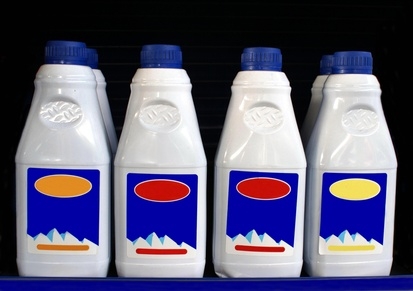
Many GM-manufactured vehicles use an orange anti-freeze known as Dex-Cool, however many consumers have reported problems with the use of this antifreeze in their vehicles. Problems revolve mainly around the overheating of the coolant system, resulting in damage to the gasket, radiator, engine and transmission. Repairs are costly. However, the culprit may be due to mechanical faults in the GM vehicles and keeping coolant levels too low, not the orange-dyed anti-freeze, according to I.M. Cool following a presentation by GM and Texcao at the MACS 2001 Convention and Trades Show. There are some tips to help prevent overheating in your vehicle.
Maintain the level of the coolant system and fill the reservoir bottle to the "Hot" level if the system is cold. If the system's coolant level is kept lower than this, it could cause the GM vehicle to overheat, resulting in damage to the transmission and leaks in the gasket.
Monitor and regularly clean the pressure cap. If the pressure cap is contaminated it may result in low coolant levels and cause the GM vehicle to overheat because there is significant loss of coolant.
Replace all the radiator caps, particularly those with a Drop-Center design on the ST vehicle models. The radiator caps can be replaced with Stant Model 10230 or 11230 Spring-Center type.
Mix the coolant in a 1:1 ratio with water to help the fluid flush out the engine block. Use the owner's manual to determine the capacity of the system and add 50 percent of that amount with undiluted DEX-COOL coolant, topped off with water. Use drinkable water, as it handles the minerals in this type of water better than conventional chemistry coolants.
Don't mix green coolant with Dex-Cool orange coolant, as it will reduce the batch's change interval to 2 years or 30,000 miles.